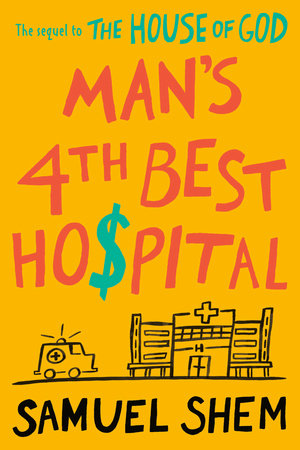 One of the most interesting twists resulting from Hurricane Maria striking Puerto Rico was Elon Musk's offer that Tesla could help Puerto Rico solve its energy crisis, with a long-term, 21st century fix. After all, its electrical grid was devastated, with almost all the power wiped out. It didn't help that even prior to this disaster its system was antiquated and badly in need of repairs. It is telling that we don't have similar offers to rebuild the Puerto Rico's health care system, which is similarly devastated. Or, for that matter, our system, which is its own kind of disaster. Mr. Musk was asked on Twitter if Tesla could help Puerto Rico using solar and battery power, and he responded in the affirmative, saying it had done so on smaller islands but faced no scalablity issues...
One of the most interesting twists resulting from Hurricane Maria striking Puerto Rico was Elon Musk's offer that Tesla could help Puerto Rico solve its energy crisis, with a long-term, 21st century fix. After all, its electrical grid was devastated, with almost all the power wiped out. It didn't help that even prior to this disaster its system was antiquated and badly in need of repairs. It is telling that we don't have similar offers to rebuild the Puerto Rico's health care system, which is similarly devastated. Or, for that matter, our system, which is its own kind of disaster. Mr. Musk was asked on Twitter if Tesla could help Puerto Rico using solar and battery power, and he responded in the affirmative, saying it had done so on smaller islands but faced no scalablity issues...
Kaiser Health News
See the following -
Elon, Do We Have a Disaster for You!
- Login to post comments
Mystery Consent Forms and the Scourge of Surprise Medical Bills
 We are, it appears, shocked -- shocked! -- that there are "surprise" bills in healthcare. That is, bills from out-of-network healthcare professionals, even when patients thought they were going to in-network professionals/facilities. The problem is bad enough that even our deeply divided Congress has bipartisan agreement that it should act (although whether it will, of course, remains to be seen). Of course, surprise billing shouldn't come as a surprise to anyone who knows much about healthcare; it is more of a symptom of problems with our healthcare system than a problem itself. Kaiser Health News/NPR deserve much credit for getting more attention for the issue, with their Bill of the Month crowdsourced investigation.
We are, it appears, shocked -- shocked! -- that there are "surprise" bills in healthcare. That is, bills from out-of-network healthcare professionals, even when patients thought they were going to in-network professionals/facilities. The problem is bad enough that even our deeply divided Congress has bipartisan agreement that it should act (although whether it will, of course, remains to be seen). Of course, surprise billing shouldn't come as a surprise to anyone who knows much about healthcare; it is more of a symptom of problems with our healthcare system than a problem itself. Kaiser Health News/NPR deserve much credit for getting more attention for the issue, with their Bill of the Month crowdsourced investigation.
- Login to post comments
Pardon Me, Your Interface Is Showing
 In a great post, "Doctor as Designer" Joyce Lee laments the "sad state of product and design in healthcare," and asks "when will device and drug companies create user-centered innovations that actually improve the lives of patients instead of their bottom line?" I heartily agree with Dr. Lee's point, and think the question can be extended to the rest of the health care system. Dr. Lee uses two examples to compare health care to consumer goods. Heinz took a product design -- the glass ketchup bottle -- that had been around for over a hundred years, and greatly improved the user experience by changing to a squeezable "upside down" bottle. This not only kept the ketchup from concentrating at the bottom but also avoided the need to hold the bottle at a special angle or to tap at a particular spot just to get the ketchup out...
In a great post, "Doctor as Designer" Joyce Lee laments the "sad state of product and design in healthcare," and asks "when will device and drug companies create user-centered innovations that actually improve the lives of patients instead of their bottom line?" I heartily agree with Dr. Lee's point, and think the question can be extended to the rest of the health care system. Dr. Lee uses two examples to compare health care to consumer goods. Heinz took a product design -- the glass ketchup bottle -- that had been around for over a hundred years, and greatly improved the user experience by changing to a squeezable "upside down" bottle. This not only kept the ketchup from concentrating at the bottom but also avoided the need to hold the bottle at a special angle or to tap at a particular spot just to get the ketchup out...
- Login to post comments
Samuel Shem Calls for Using VistA and the VA Model of Care to Solve the Physician Burnout Crisis
 On November 1st Newsweek published an extraordinary Op-Ed by Samuel Shem titled Why Computerized Medical Records Are Bad for Both You and Your Doctor. In the article, Shem, pen name for the American psychiatrist and well-known author Stephen Joseph Bergman, presents evidence that poorly designed electronic medical records (EMRs) and over-regulation are to blame for the growing crisis of physician burnout and suicide. The rate of suicides among physicians has risen to a staggering number--three per day. Shem argues that there is a "better way," and that is shown by the electronic health record (EHR) system used by the U.S. Department of Veterans Affairs (VA). The VA's EHR is called VistA. Shem's view is supported by a large and increasing number of physicians and nurses. Read More »
On November 1st Newsweek published an extraordinary Op-Ed by Samuel Shem titled Why Computerized Medical Records Are Bad for Both You and Your Doctor. In the article, Shem, pen name for the American psychiatrist and well-known author Stephen Joseph Bergman, presents evidence that poorly designed electronic medical records (EMRs) and over-regulation are to blame for the growing crisis of physician burnout and suicide. The rate of suicides among physicians has risen to a staggering number--three per day. Shem argues that there is a "better way," and that is shown by the electronic health record (EHR) system used by the U.S. Department of Veterans Affairs (VA). The VA's EHR is called VistA. Shem's view is supported by a large and increasing number of physicians and nurses. Read More »
- The Future Is Open
- Login to post comments
The Business of Healthcare Is Business
 Hmm, that headline doesn't seem right, does it? I mean, shouldn't the business of healthcare be, well, health? Or, at least, caring? Actually, shouldn't the business of healthcare be patients? After all, everyone in healthcare says it's all about patients. Everyone says they're patient-centered, whatever that means. But think about this: who in healthcare gets paid for you to be healthy? Or, conversely, who in healthcare doesn't get paid when you get sick, or when you don't improve under their care? Whether we planned it or not, whether we admit it or not, or whether we like it or not, our healthcare system is a business that has become about making money.
Hmm, that headline doesn't seem right, does it? I mean, shouldn't the business of healthcare be, well, health? Or, at least, caring? Actually, shouldn't the business of healthcare be patients? After all, everyone in healthcare says it's all about patients. Everyone says they're patient-centered, whatever that means. But think about this: who in healthcare gets paid for you to be healthy? Or, conversely, who in healthcare doesn't get paid when you get sick, or when you don't improve under their care? Whether we planned it or not, whether we admit it or not, or whether we like it or not, our healthcare system is a business that has become about making money.
- Login to post comments
When It Comes to Pharmaceuticals and Medical Devices, We Should Ask More and Listen Better
 A new study in JAMA suggests that nearly one-in-three drugs approved by the FDA between 2001 and 2010 had post-market safety issues, which caused safety communications to physicians and consumers, "black-box" warnings on labels, and drug withdrawals. It is not clear how many patients may have died or otherwise harmed by these issues...Lead author Joseph Ross, M.D., noted: "No drug is completely safe, and during premarket evaluation, we are not going to pick up all the safety signals," and urged "that we have a strong system in place to continually evaluate drugs and to communicate new safety concerns quickly and effectively."
A new study in JAMA suggests that nearly one-in-three drugs approved by the FDA between 2001 and 2010 had post-market safety issues, which caused safety communications to physicians and consumers, "black-box" warnings on labels, and drug withdrawals. It is not clear how many patients may have died or otherwise harmed by these issues...Lead author Joseph Ross, M.D., noted: "No drug is completely safe, and during premarket evaluation, we are not going to pick up all the safety signals," and urged "that we have a strong system in place to continually evaluate drugs and to communicate new safety concerns quickly and effectively."
- Login to post comments
Why Computerized Medical Records Are Bad for Both You and Your Doctor
 We should not click for cash, but for care. We can use the data to benefit the patient-and the medical professionals...The EMR could have been a lifesaver. It still can be. If we get rid of on-screen, for-profit billing, and use electronic screens exclusively for care, we solve a lot of problems. We could create a true national health care system, modeled after our existing two national systems-Medicare/Medicaid and the VA. As in all other national systems, each procedure would cost about the same all over the country. On longitudinal charts showing the health of Americans as they age, a sharp rise in good health suddenly increases at age 65, when Medicare kicks in. Read More »
We should not click for cash, but for care. We can use the data to benefit the patient-and the medical professionals...The EMR could have been a lifesaver. It still can be. If we get rid of on-screen, for-profit billing, and use electronic screens exclusively for care, we solve a lot of problems. We could create a true national health care system, modeled after our existing two national systems-Medicare/Medicaid and the VA. As in all other national systems, each procedure would cost about the same all over the country. On longitudinal charts showing the health of Americans as they age, a sharp rise in good health suddenly increases at age 65, when Medicare kicks in. Read More »
- Login to post comments
Winners And Losers With The 21st Century Cures Bill
A sprawling health bill that passed the Senate Thursday by a 94 to 5 vote and is expected to gain President Obama's signature is a grab bag for industries, academic institutions and patient groups that spent oodles of time and money lobbying to advance their interests. Senate Majority Leader Mitch McConnell calls it "the most important legislation that Congress will pass this year." Who wins and who loses? Here's the rundown of what's at stake in the 21st Century Cures Act...
- Login to post comments